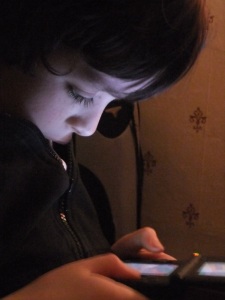
“Using Facebook can raise your risk of cancer“. Daily Mail, 19 Feb 2009.
Information has social impacts, not always positive, and this topic asks you to consider the social impact of information literacy. It also asks you to consider the responsibilties of disseminating information to a society that may not generally be information literate, and the importance of considering the social impact of your research. How is information used and – as with this headline – abused by the media?
This section also discusses the information commons, and issues surrounding open access of work.
Goldhaber, “Attention Economy”
The Attention Economy explained
Ben Goldacre’s ‘Bad Science’ website
Politics and the English Language
Who writes the news?
This section takes a case-study of the television news to highlight the importance of thinking about the context of your work, and how knowledge is appropriately constructed. This section asks you to think about what it means to be an information literate professional, and discusses how this is reflected, or otherwise, in the news arena.
Bias and parochialism in news reporting
Interview with a senior news producer
ACTIVITY: Mainstream and alternative views
* * *
Podcast 6B: The information commons
Recommended reading: Levine chapter. This resource has been provided with the permission of MIT Press. It should not be reused without permission.
* * *